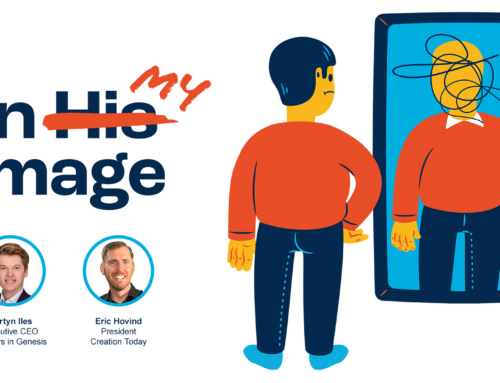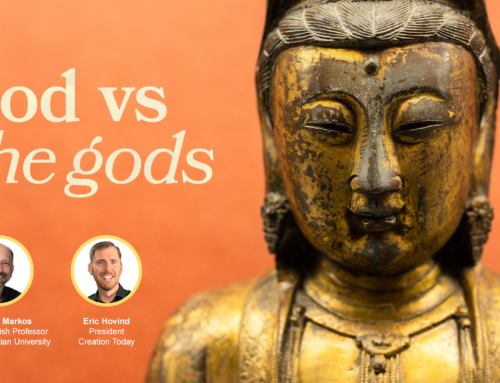Have you heard the common paradox, “If God can do anything, can He create a rock that He is unable to lift?”
 You may have dismissed this question as trivial, or maybe you struggled with the idea that the God of the Bible is not who the Bible claims He is. This struggle may have led you down a rabbit hole of finding other puzzling questions about God and the Bible, ultimately leaving you searching for solid answers. Well, don’t fear, my friend, because we have just the show for you!
You may have dismissed this question as trivial, or maybe you struggled with the idea that the God of the Bible is not who the Bible claims He is. This struggle may have led you down a rabbit hole of finding other puzzling questions about God and the Bible, ultimately leaving you searching for solid answers. Well, don’t fear, my friend, because we have just the show for you!
For several years, critics have claimed that contradictions in certain Biblical doctrines, church denominations, and in the Bible itself are proof that the Word of God is not the divinely inspired, infallible text it claims to be. However, this argument falls apart under closer scrutiny, and, in this week’s show, “Does the Bible Contradict Itself? (Part One),” Dr. Tim Chaffey highlights some important counterarguments every believer should know.
For years, when it comes to this issue, an unfortunate standard practice in the church is to teach that the Bible is infallible, but neglect to equip believers to answer questions from those who disagree. Dr. Chaffey argues that the truth of the Bible, although not able to be fully proved with scientific certainty, is a well-reasoned belief. From fulfilled prophecies to significant archaeological evidence, so much of the Bible has been proven to be trustworthy.
According to Dr. Chaffey, alleged contradictions in the text fail to recognize proper context, and are not issues that would in any way disprove Christianity. Still, he walks through several common questions and misperceptions about the Bible, covering topics such as the Sabbath day and the omnipotence of God. And he even discussed the “God and the immovable rock” paradox.
Ultimately, Dr. Chaffey explains that alleged Bible contradictions often are the result of confusing God’s infallible revelation with humans’ fallible interpretations. As Christians, we should be very careful about how we read and interpret the Scriptures so we don’t fall into the contradiction trap. If you want to learn more about how to read the Bible and successfully address skeptic’s questions about contradictions, be sure to schedule some time into your week to watch this informative show.







